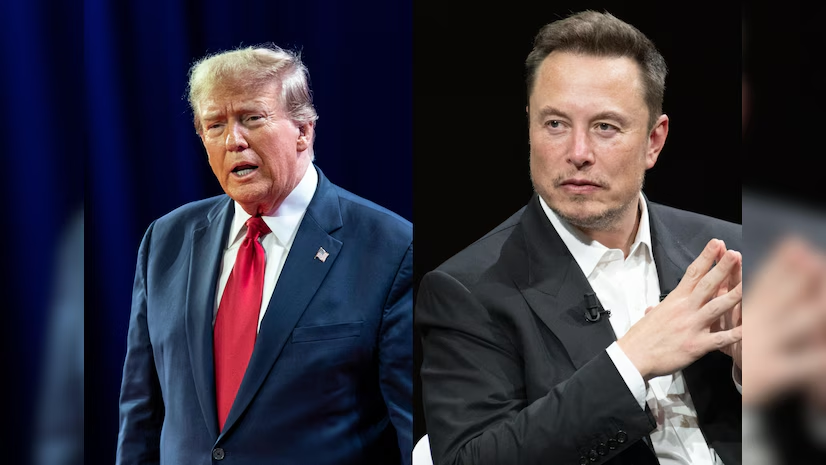In a public feud that has rapidly spiraled into a political spectacle, Elon Musk and former U.S. President Donald J. Trump have traded sharp words, personal allegations, and economic threats—further exposing fault lines between the country’s most powerful business magnate and one of its most divisive political figures.
The confrontation, which began with Musk’s vocal opposition to Trump’s proposed “One Big Beautiful Bill”—a sweeping economic package aimed at tax reform and infrastructure—has grown into something far more incendiary, dragging in issues of federal contracts, the Jeffrey Epstein case, and past presidential elections.
A Legislative Dispute Becomes a Personal Grudge
Musk, who heads Tesla, SpaceX, and the social platform X (formerly Twitter), took to his own platform to call the Trump-backed bill a “disgusting abomination,” citing its implications for clean energy policy, national debt, and its perceived tilt toward oil and gas interests.
Trump, not known for letting criticism go unanswered, retaliated quickly. In a statement issued via Truth Social, the former President called Musk “ungrateful” and suggested he would revoke federal contracts held by Musk’s companies if re-elected. “He wouldn’t be where he is without me,” Trump wrote. “Remember that.”
Musk fired back: “Trump couldn’t have won in 2016 without Twitter—and he won’t win again.”
Epstein Allegations: Musk Makes a Bombshell Claim
The feud took a darker turn when Musk publicly implied that Trump’s name might be among those in unreleased documents related to convicted sex offender Jeffrey Epstein. In a cryptic but direct post, Musk wrote: “Why do you think some Epstein files haven’t been released yet? Mark this post for later.”
The accusation prompted Democratic lawmakers to call for a formal inquiry into the status of sealed Epstein records and whether any political interference has delayed their release.
Trump has not directly addressed the Epstein allegation, but a campaign spokesperson called Musk’s remarks “baseless, defamatory, and desperate.”
Markets React, Allies Waver
The fallout has already begun to ripple through financial markets. Tesla shares fell sharply following Trump’s remarks about ending government contracts, erasing billions in market capitalization in a matter of hours. Meanwhile, Trump Media & Technology Group also saw its stock dip amid the controversy.
Behind the scenes, allies of both men appear uneasy. Some Republican donors close to Trump have privately expressed concern that the feud could alienate younger, business-minded voters. Conversely, some clean energy advocates and libertarians—once enthusiastic about Musk’s political centrism—worry his involvement in personal smear campaigns could undercut his credibility.
More Than Just Ego
For political analysts, the Musk–Trump conflict represents more than a clash of egos. It underscores a broader ideological rift between the fossil-fuel-friendly populism of Trump’s Republican base and the techno-optimist, market-driven climate agenda embraced by Musk and others in Silicon Valley.
“This isn’t just about legislation,” said Dr. Linette Morales, a political historian at Columbia University. “It’s about the future of the Republican coalition—and who gets to define what American capitalism should look like.”
A Feud Far from Over
With the 2026 midterms looming and speculation about Musk’s growing political ambitions increasing, the showdown is unlikely to fade soon. What began as a disagreement over a piece of legislation has morphed into a power struggle between two men whose influence spans tech, politics, and public opinion.
In the process, the Musk–Trump feud has become a prism through which the contradictions of modern American conservatism—and the volatility of its alliances—are increasingly visible.


